The incident of Sandro Tonali being discovered to have participated in betting and match-fixing once again shows that betting always threatens the integrity of matches.
In the third quarter of 2023, the International Betting Integrity Association (IBIA) said football and tennis accounted for more than half of all suspected match-fixing cases.
It fits with suspicions from past seasons. Last year, an unnamed Arsenal player was investigated for betting on a yellow card in the Premier League. This year, the British newspaper The Athletic revealed that two Europa Conference League matches were being monitored by UEFA for suspicious betting patterns.
Recently, this British newspaper met with three experts in the field of betting and sports statistics to find out the cause of this situation. All agreed that the primitive nature of football - a sport of surprises - makes it always associated with cheating.
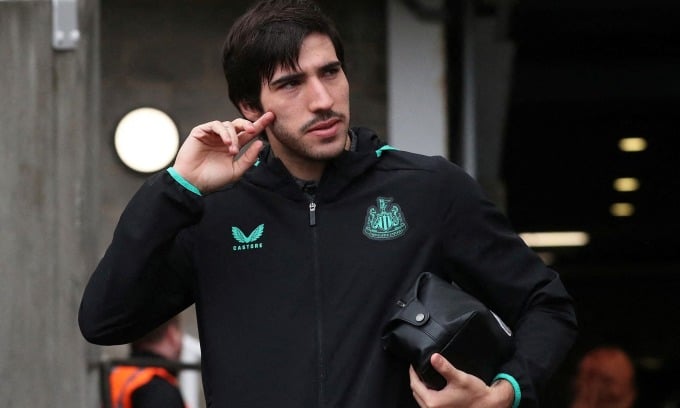
Newcastle midfielder Tonali was suspended for 10 months for football betting while at AC Milan. Photo: Reuters
Sergio Aguero’s last-minute winner that clinched the Premier League title in 2012. Zinedine Zidane’s red card-turning headbutt in the 2006 World Cup final. Manchester United’s comeback in the 1999 Champions League final. None of these moments have been investigated. Goalkeepers aren’t paid to concede goals, referees aren’t bribed to show cards. Fixing a football match isn’t that difficult. A defender deliberately giving the opposition striker extra space, or a goalkeeper being a split second slower to make a save… can change the outcome.
“Fans love the unpredictability,” explains Ben Paterson, Director of Data Quality Integrity at IMG Arena.
According to this expert, the possibility of top matches being fixed is low, because at this level, players are treated very well. High income is an effective way to prevent risks, while at lower levels, with fewer events, there are not many opportunities for bettors to go all-in for huge sums.
“But when market demand peaks, the opportunity to make money from betting is still extremely attractive,” Paterson explains.
In Brazil in March, 16 players were charged with match-fixing in 13 games, including eight in the top flight, and many were banned for long periods. The top divisions in Italy and Spain have also been plagued by match-fixing and have had scandals in recent decades. In 2005, Germany was also hit by a refereeing scandal.
"If one bookmaker's odds are different from the rest, we need to look closely. We have a department that monitors the odds of matches every minute, every second," said Paterson.

Santos defender Eduardo Bauermann is among a group of Brazilian players accused of match-fixing. He is said to have received $10,000 for a yellow card in a match against Aval.
Another reason why football cannot be separated from betting is because the owners of the football teams also do... betting. Tony Bloom, the owner of Brighton, has invested in betting activities on top-level matches in England. To own Brighton, Bloom must be subject to independent control and submit annual declarations to ensure transparency.
Affy Sheikh, head of integrity services at Starlizard, a sports betting consultancy whose biggest betting client is Tony Bloom, told The Athletic : "Sports betting is a cross-border, organised activity. It's difficult for the police to intervene because a cross-border operation requires the cooperation of police from different countries, and this is not always easy."
When it comes to international police cooperation, terrorist activities and hunting dangerous criminals are given more importance than betting issues.
According to Sheikh, betting is a huge global money-making opportunity for criminal organizations. Football is the world's most popular sport, with a large reach and large stakes every day.
Asia is now the hub of match-fixing in countries where it is legal, such as the Philippines. However, much of the money comes from elsewhere, particularly China, where betting laws are much stricter.
Some Premier League shirt sponsors also play an important role in betting activities. There are even many such criminal gangs in Europe. According to Sheikh, the group of players who fall into debt are easily manipulated. "Although they have high incomes, if they are terrorized by criminal groups with threats of violence and kidnapping, the possibility of players participating in betting activities is also very high."
According to Sheikh, more and more criminal groups are getting involved in betting and player bribery, adopting new forms such as allowing bets to predict the first half result rather than full time, as this presumably makes it easier to bribe players.
This also exists in tennis. It is easier for a player to lose the first set and then fight for the rest of the match to win the match than to lose the match.
According to Sheikh and Paterson, betting has spread to many parts of the world in part because it facilitates money laundering. “It is becoming easier to hide the flow of one or more large bets,” Paterson said.
Chris Rasmussen is a lecturer in Sports Betting Integrity at the University of New Haven. According to him, match-fixing is becoming easier to detect because sports data is so comprehensive. "However, organized crime groups continue to spread match-fixing activities," he said. This expert believes that illegal betting is not only related to sports, but also other forms of crime such as human trafficking and drug trafficking.
"These activities complement each other, which also means that match-fixing in football can be directly linked to other bad activities," he said. "Technology is getting better, but criminals are also getting smarter."
Do Hieu (according to The Athletic )
Source link










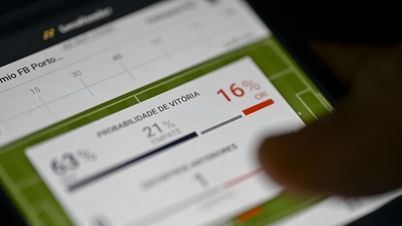

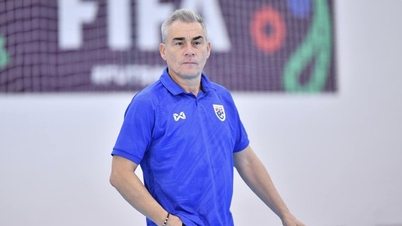





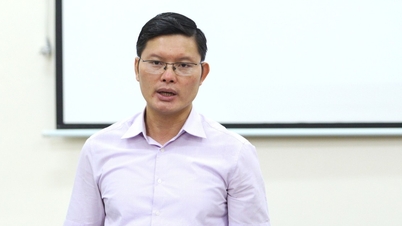






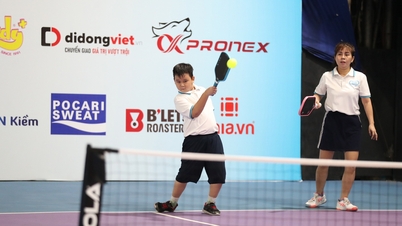
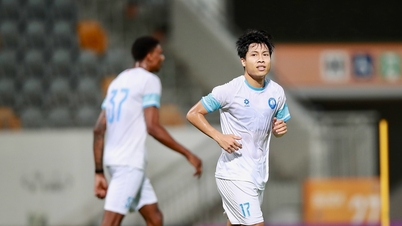
















































































Comment (0)